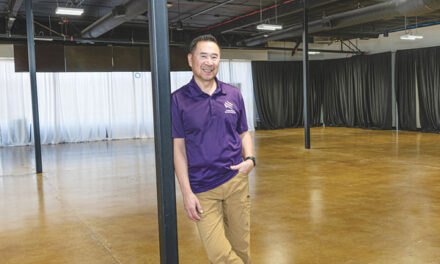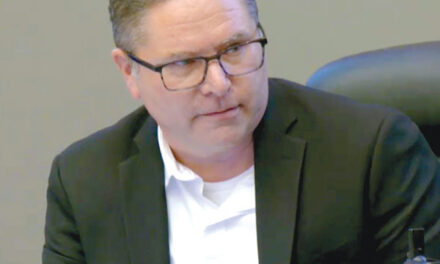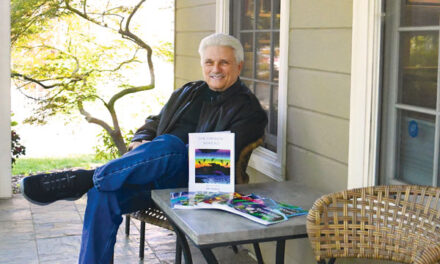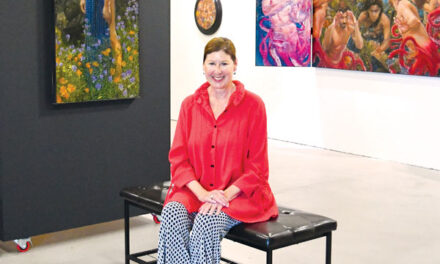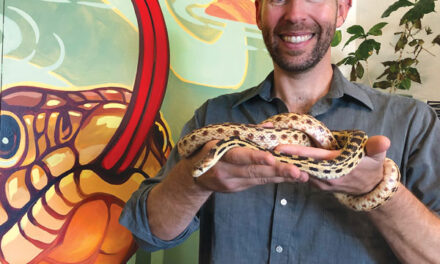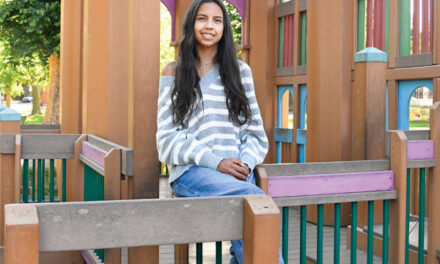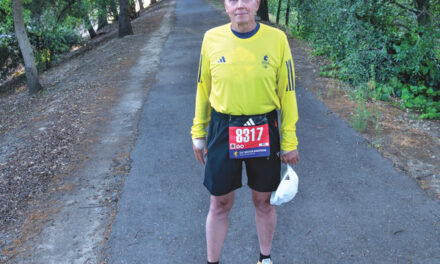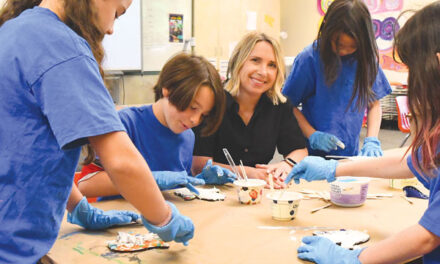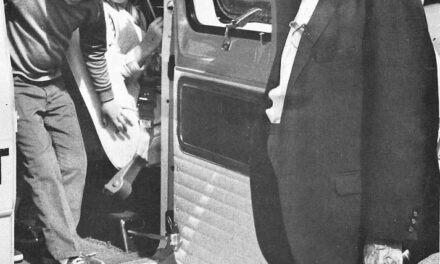Another Mother
She Was a Neighbor, But Became So Much More
By Cecily Hastings
March 2019
Around four years ago, I wrote a story about the death of an elderly neighbor. Her name was Hazel Cramer, and she passed away peacefully at home in late 2014 at the age of 97.
She lived in her home for 80 years after moving there with her parents as a teenager. Over the years, Hazel was married and widowed three times. She was survived by a few relatives who lived far from California and tended to her as best they could from long distance. Hazel had no children.
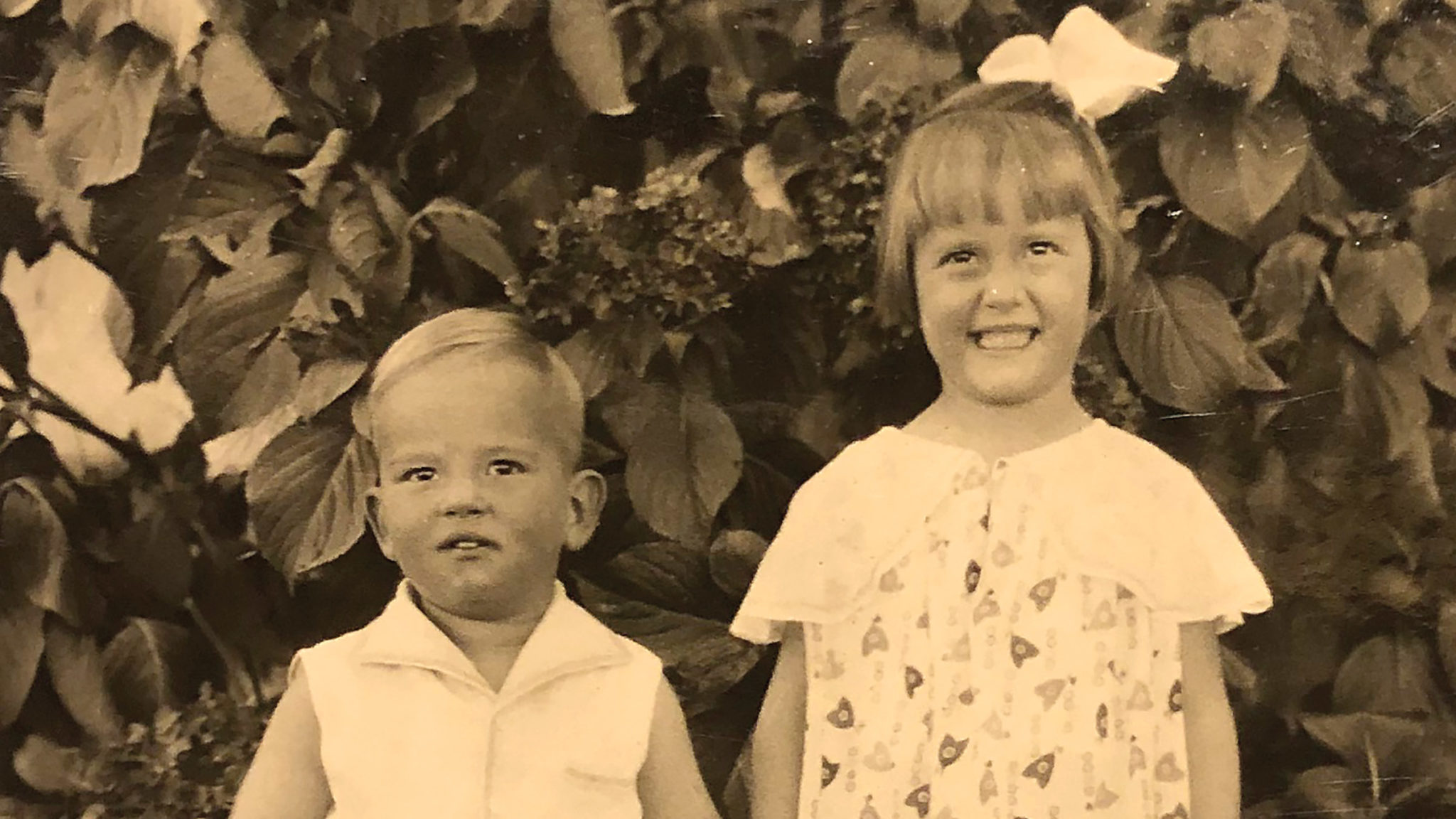
Her primary caregiver was her best friend for many decades, Helen Jursch. Helen never married. She had no children. Her only sibling was her brother Bob Jursch, who was declared “missing in action” in the Korean War at age 19. Helen was 10 years younger than her friend Hazel.
My husband Jim and I adopted Hazel and Helen about 13 years ago, when we had them over for a block party and realized they had no family. My own mother, who was Hazel’s age, had just died and we missed her very much.
For almost nine years, I visited Hazel and Helen every week to give them companionship and conversation. My husband became their newspaper deliveryman after they were forced to cancel their Sacramento Bee subscription. The real carrier could not deliver the paper to their porch, where they could comfortably retrieve it.
Hazel loved The Wall Street Journal. She was delighted that Jim brought the Journal down every day along with the Bee and carefully placed the papers on their doorstep.
Hazel spent the last year of her life in hospice care, and we became more focused on what lay ahead for Helen. A decade earlier, she had moved in with Hazel to care for her friend. But she still had her own home in Land Park.
Hazel owned a considerable estate. Before she died, she told me she pledged her money to Sacramento State University for scholarships. As I looked around her house, filled with years of mementos from her life and world travels, I remember thinking I was glad that emptying the house was the university’s problem and not mine.
So I was surprised to learn she had appointed me as executor of her estate. The job was originally designated for Helen, but she was 87, and there was no way she was prepared to handle a job of that magnitude.
The year after Hazel’s death was one of the most consequential and stressful of my life. I had to empty her home and sell it. And I had to deal with dozens of bank and brokerage accounts that comprised her estate. Of course, not one record was computerized. I hired estate attorney Brian Wyatt to guide me through the process and work with the university on the donation, which was one of the largest in the school’s history at more than $5.5 million. Brian’s council was extremely valuable. My job as executor was finally completed in 2018 after four years of work.
As if this responsibility after Hazel’s death wasn’t enough, we had to move Helen back to her home and help her as she grieved the loss of her best friend. She had lived for more than a decade with the sole mission of caring for Hazel. She clearly could not conceive of life after Hazel. We included her in family gatherings, and my children graciously became her grandchildren. But the sadness Helen plainly endured was difficult for all of us.
A few weeks after returning home, Helen discovered a lump on her head. It was quickly diagnosed as cancer. The tumor required major surgery and nursing care. I was able to move her to Mercy McMahon Terrace as soon as a room opened up.
While Hazel’s possessions were very important to her, Helen was the opposite. When I asked what she wanted us to move into her assisted-living quarters, she said I should make the decision. “Everything in that house was my mother’s,” she said.
My mother had lived in the same facility years before, so I knew what the studio space would allow. When I showed up to meet the movers, they handed me a key to Room 344. As I walked down the hallway everything looked familiar. Helen’s studio was the same room my mother once lived in!
No one was happier with that turn of events than Helen. We agreed it was “simply meant to be.” Not everyone is pleased to move to assisted living, especially someone as independent as Helen. But the studio’s legacy eased the transition.
Using the skills I learned while emptying Hazel’s home, I did the same for Helen. A friend’s daughter and contractor husband were looking for a fixer-upper. They bought the house that hadn’t had an improvement in more than 50 years.
Getting to know Helen under these circumstances was interesting. For the previous decade, the focus of our relationship was caring for Hazel. And Hazel was very similar to my mother. She was sociable and gregarious. She loved to read and travel the world.
Helen was another bird entirely. She was quiet, not especially confident, and never enjoyed reading anything other than the daily newspaper and Inside East Sac. She only traveled to serve as a companion for Hazel.
But Helen was kind, loving, and had a fun sense of humor. She was also extremely grateful.
In an earlier era, Helen would have been called a “tomboy.” She loved sports, so my husband took her to River Cats games and watched sports with her on television.
On visits to my mom, I could pretty much bring up any subject and we could talk for hours. We read the same books, traveled to similar places and had family ties. This was not the case with Helen. We had no shared history.
We bought her a big, beautiful new television and set up movie streaming so we could watch films and historic series together. She never went to the movies, so I was able to watch dozens of my favorites again, plus all six seasons of Downton Abbey.
Another important part of our connection to Helen was our dog McKinley. From the time he was a puppy five years ago, Helen always cherished her time with him. He had his own bed and toys at her apartment. She called him her grand dog.
Three years ago, Helen was diagnosed with liver cancer. I’ve been lucky to have never had a loved one receive that dreaded diagnosis. But Helen seemed almost pleased by the news. She was one step closer to being in heaven with her beloved Hazel and brother Bob.
Over the years, there were many end-of-life decisions to navigate. Helen needed help settling her finances. A charitable-giving plan was established for her favorite animal welfare and veteran’s charities. We set protocols to honor her desire to die at home and not in a hospital.
The last couple years she spent in and out of hospice. She was blessed with a few dedicated loved ones who kept in touch and helped us during the final year of her life.
A few months before she died this past fall, she was heartened when President Trump’s diplomacy with North Korea resulted in MIA remains being repatriated to the U.S. She often asked when she might find out what happened to Bob. (I helped her send a DNA sample to Veterans Affairs years ago.) We told her she was much more likely to meet Bob in heaven and find out firsthand than hear from the government. She smiled and loved the thought.
When Helen finally passed, I was focused emotionally on her being able to join her loved ones, free of earthly bonds. Yet my personal grief came as something of a surprise. My husband and I realized Helen had been a “burning bush” God had put before us to be of service to others. While at times the experience of the past four years seemed overwhelming, we felt a loss of purpose when it was gone.
Giving of oneself to help others brings us closer to the deep human connection that I believe we are all intended to experience.
Look carefully around your neighborhood. You never know who may need a little help.
Cecily Hastings can be reached at publisher@insidepublications.com.



